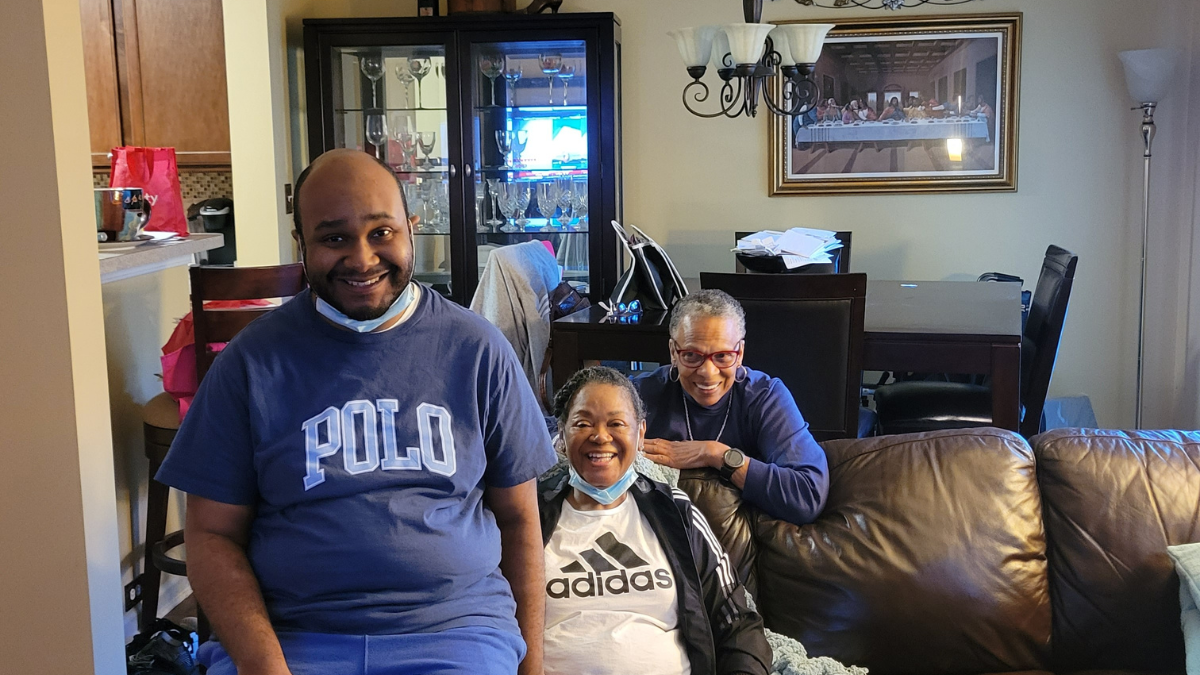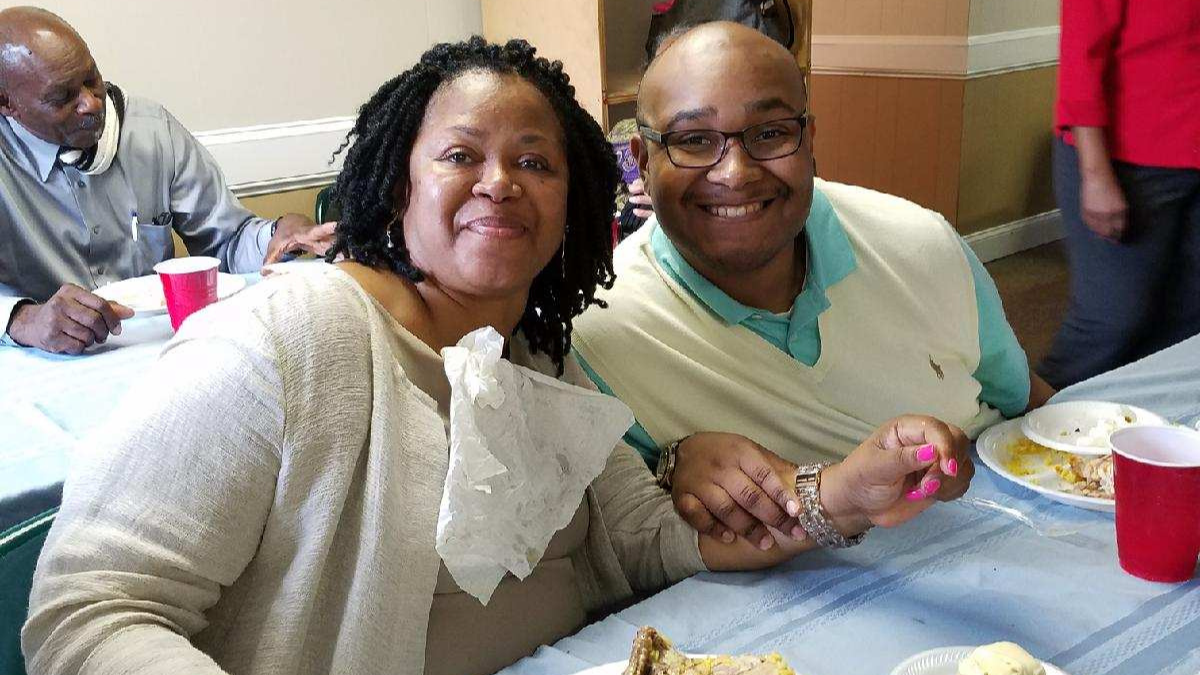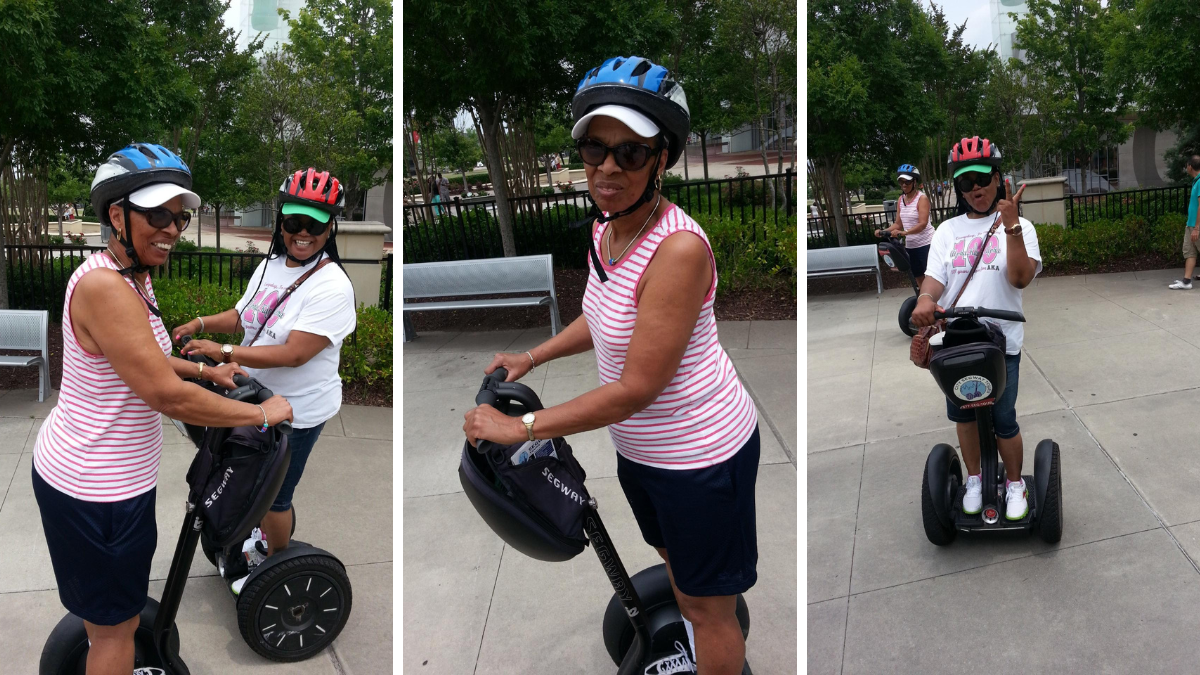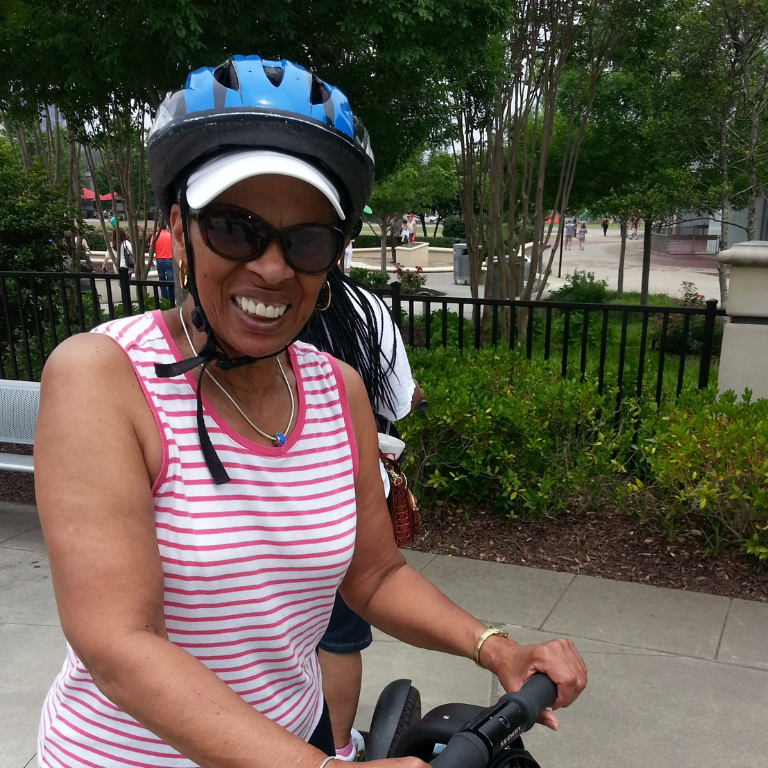2022 Abby Lessack Caregiver Award profile: Marcella Palmer
- 11/16/22
In 2022, LBBC inaugurated the Abby Lessack Caregiver Award to celebrate caregivers and the important role they play in the lives of those impacted by breast cancer. Marcella Palmer is one of the five honorees, and when you read her interview with Jean, you’ll understand why. Click here to learn more about all five of this year's Abby Lessack Caregiver Award honorees.

Marcella Palmer served as a caregiver to her friend Debra during her diagnosis. Debra and Marcella became friends through church. Together they would often provide support to those in need.
Marcella has been giving and serving quietly her entire life. Debra describes Marcella as an “angel,” who stepped in to not only help her, but care for her adult son who is autistic. She made sure that when Debra was diagnosed, she supported her during treatment and beyond. She took on cooking, shopping, cleaning, and other household chores so Debra could fully focus on her health and recovery.
Marcella spoke with LBBC’s CEO Jean Sachs about her experience as a caregiver for Debra and her son.
Jean: You met Debra through your church?
Marcella: Yes, we’ve been in the same church for almost 20 years now. Sometimes I went with Debra to visit the sick and the shut-in seniors and some of our church members in the hospital and homes. We would take lunch, and we would go and see if there was something that we could help with. Sometimes we’d just say a prayer with them. So, when I think about caregiving, I might not be right in saying what I'm saying, but what Debra and I did together, going to visit our church members and helping them out, that looked like some caregiving to me.
Jean: That’s amazing and wonderful. You continue to do it, too. So, what were some of the specific things you did to support Debra?
Marcella: Well, she has her son, who is a young man. For him, mostly I made sure he has his meals, and I would help wash. She is a very neat, clean person, so, my gosh, I had a lot to keep up with, but he was good. He knew what to do when his mom wasn't there, so it was easy for me. He had his chores: taking the garbage out, getting the mail, and making sure the lights were on and the doors were locked. He had his routine. I just did the things that he couldn't do. But we got along pretty good.

Jean: And that was so she could go get her treatment, go to her doctor's appointments, and not worry about her son?
Marcella: Yes. And, there was one day, I came to visit her and he's not used to opening doors for anybody. She knew I was supposed to come, so I called and called. The phone rang and rang and rang, and still she didn't answer. And I was just wondering why. Well, then I went and knocked on the door. I kept knocking, and then he opened the blinds a little. I said, “Let me in,” and then he opened the door.
“Mother’s upstairs lying on the floor,” he said. When I went up there, she was out of it. I called an ambulance, and they came and took care of her. From there, she went to the hospital and, it just came to me that I had to help him out. I had to stay there with him because he never been left home by himself, which I knew. So, I just tried to fill in for her.
Jean: They're so lucky that you came and knocked on the door. It's scary to think what could've happened. You didn’t miss a beat and stepped right in for three months—is that right?
Marcella: From about July to September, Debra was in the hospital.
Jean: That's amazing. So, the way that you helped her during her breast cancer and when she had the other health conditions was helping out with her son? Otherwise, she did everything else, the shopping and the cooking?
Marcella: No, she couldn't do that. She was gone for a couple of months. So, I did everything you usually would do at the house, even pay the bills. The Lord was so good to us. She gave me her credit card to use to do anything I had to do. When she called me and asked me to buy something, since I had the card, it was easy. I could buy what I needed for him. Whenever things came up, it was like the good Lord just opened the way. Everything was so easy for me.
Jean: Did you live there with him?
Marcella: Well, yes and no. I was there with him at night, and in the mornings, I could go out if I had appointments, and I'd come back and I fed him all his meals. So, for the sacrificing, I think the only sacrifice was that I didn't sleep in my own bed for a few months. I think the Lord was very good to both of us. It wasn't that bad at all. I didn't have to worry. I did wash clothes. I cleaned the floors and the dishes and cooked. We went for walks, too.
Marcella is an angel. She didn't have to stay with my autistic son. But she did. Because of her, he stayed in our home, and I could complete my recovery at Emory Hospital. My son and I are grateful.
Jean: I don't know what they would've done without you! So, what you would you say was the most rewarding aspect of caregiving for you?
Marcella: One of the most rewarding days for me was when he asked me if we could go to the store, because he wanted to pick up a welcome home balloon for his mom. He wanted it ready for her. So we did. We went to the store, and he picked it out and brought it back home. When she came home, he was just so happy. And she was so happy. Really, I don't know who was the happiest. They were just hugging and kissing. There were some tears. You know, it was just so, so precious. And that was very rewarding.
Jean: So, you’re one of the honorees for an award created by Amy Lessack, who wanted to shine a light on the efforts, whether huge or small, of caregivers, because she was so grateful to her sister, Abby, for her selfless care. I think she would have been so impressed that you cared for Debra and her son as if you were a close relative.
Marcella: Debra’s a very smart young woman. She’s strong, and she's generous, and she thinks so much deeper than I do. She thought I was really critical in her recovery. I just know that her young man shouldn't have been left home by himself. And I knew that she cares so much about her son that she was doing all she could to get back to him.
Jean: That's incredible. How is Debra’s health today?
Marcella: It's stable, but she's still got some health issues that tire her out in the evening. I go shopping for her and pay some of the bills. I take her young man to the store. So, I still do little things for her. Debra doesn't have blood family around. And, so, I step in a little bit.

Jean: When you found out she nominated you for this award, what did you think?
Marcella: Oh, I was speechless! I was so surprised and didn’t know what you were talking about. Because the only thing that I couldn't do was sleep in my own bed. Other than that, you know, I was free. I could go and come. And so I didn't think I did that much, but Debra thought I did. When I washed the clothes, she saw how I had folded up her son's undershirt, and she thought I did such a good job, but I didn't think I did. But, she was just happy that I could do things for her son, and I'm happy that I was available to do that for her.
Jean: Yeah. Well, it's a real gift that you cared for her as if she was a close relative. And I think not sleeping in your own bed is a big sacrifice. I love to travel, but I'm always happy to come home and sleep in my own bed.
Marcella: (Laughs.) Yes.
Stay connected
Sign up to receive emotional support, medical insight, personal stories, and more, delivered to your inbox weekly.



